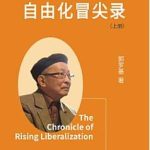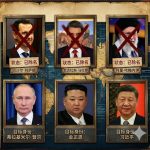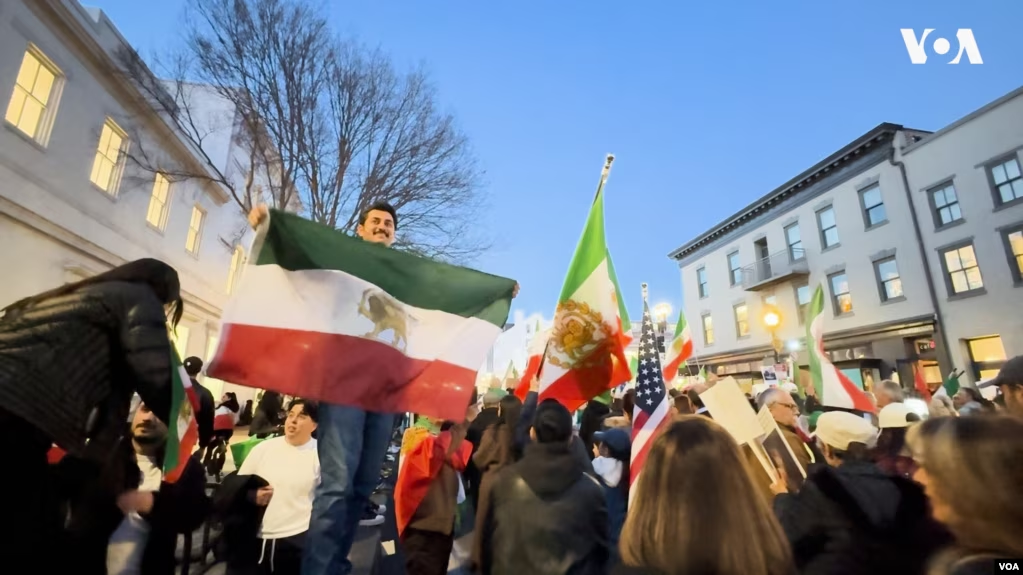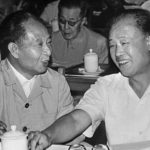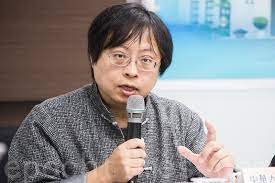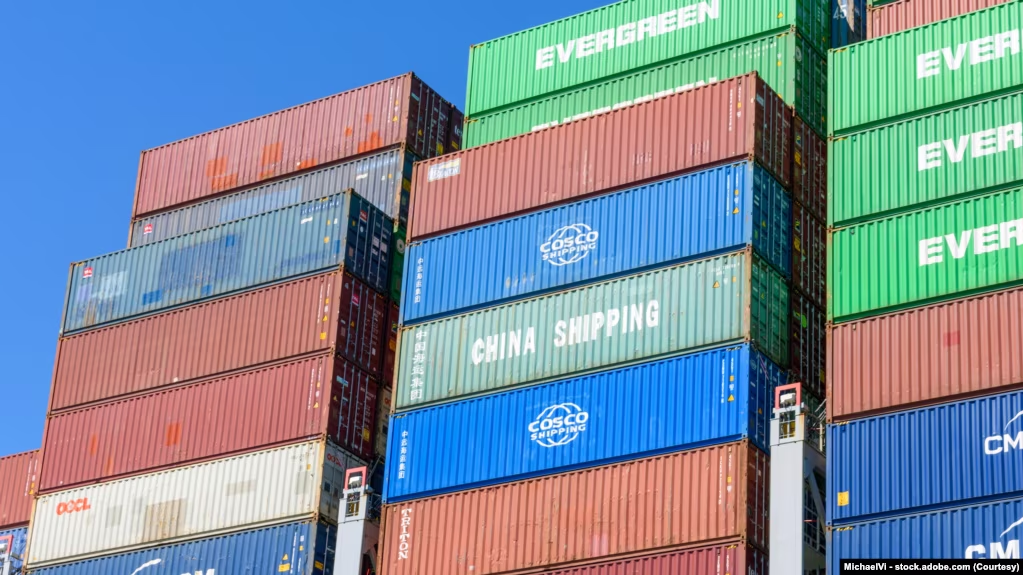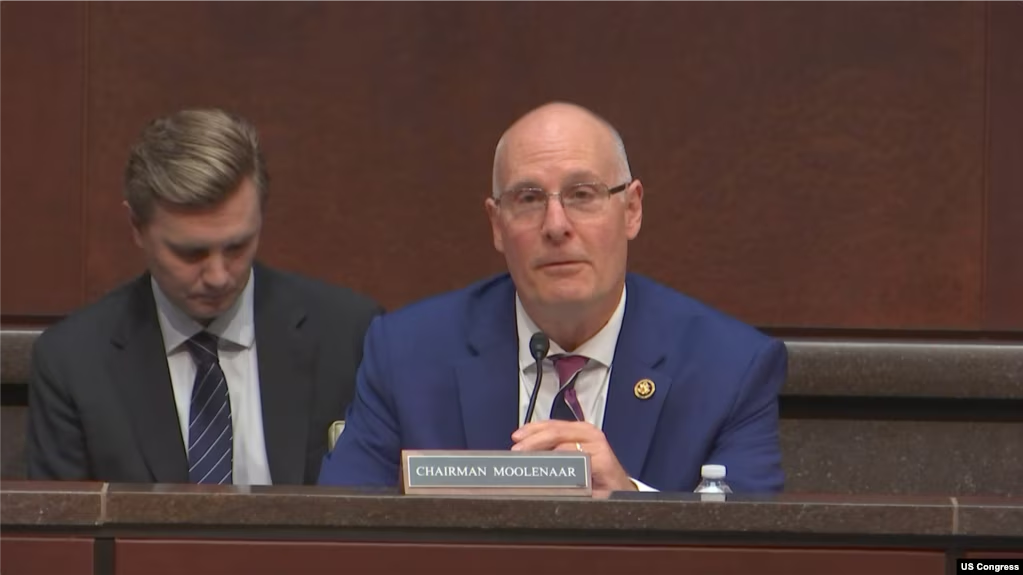published: December 11, 2014
This time last year, volunteers and I were busy writing and translating articles to prepare for the New Citizens Movement trials. Many Chinese voices were speaking out forcefully against these trials: law professors, rights lawyers, liberal commentators, as well as a group which called itself the “New Beijingers.” They were Beijing residents and taxpayers without
Beijing household registration and their children had difficulty enrolling in schools and could not take college entrance exams in the city where they lived. Dr. Xu Zhiyong was not one of these parents but, because of the Education Fairness Campaign he had led, the legal scholar and initiator of the New Citizens Movement was charged with “disrupting order in a public place.” The “disruption” refers to the gatherings of parents, from a few dozens to a few hundreds, and the “public place” refers to the area in front of the office buildings of the education authorities.
On January 22, Xu Zhiyong was tried and subsequently sentenced to four years in prison. In the months that followed, in Beijing, Guangzhou, Xinyu, Hefei, Chibi, and other cities, more New Citizens Movement activists were tried for “disrupting order” or “provoking disturbances” but their real “crimes” were organizing social gatherings to discuss ideas to effect political change in China and displaying banners in streets demanding that officials disclose their assets, baby steps to exercising their political and civil rights that were good on paper – China’s Constitution – but not in reality.
On January 15, Uighur economics professor Ilham Tohti was arrested all of a sudden. After five months of incommunicado detention, his lawyer finally met him in a detention center in Urumqi, capital of Xinjiang in northwestern China, shackled and enervated. He has for many years been a voice of reason for his people, criticizing the Chinese government’s ethnic policies, championing true autonomy, and setting up the Chinese-language website uighurbiz.net to facilitate healthy communication between the Hans and the Uighurs. Ilham’s arrest was the first shock of the year that was to become only worse.
Throughout February, and indeed throughout much of the winter, air pollution across China was so bad that a photo I tweeted of Shanghai’s skyscrapers piercing out of black smog that resembled a graveyard. It went viral on Twitter, an images that goes straight to our psyche, bypassing the incessant arguments and counter-arguments about China swirling around us all the time.
The first day on March, several knife-wielding men and at least one woman killed 33 and injured more than 140 in the train station in the southwestern city of Kunming. The Chinese authorities blamed Uighur separatists for the terrorist attack. When asked his opinion about the violence, Chinese writer Wang Lixiong, who had travelled in Xinjiang in nine trips over the span of nearly three decades, pointed out wearily that the Uighurs are a people who increasingly do not feel at home in their own homeland.
On March 14, a middle-aged woman named Cao Shunli died of multiple organ failures in police custody. With a graduate degree in law fromPeking University, one of China’s most prestigious universities, she was detained the previous fall en route to Geneva to receive human rights training. Her “crime” had been to demand participation in China’s domestic plans to advance human rights, and report the progress to the UN Human Rights Council in
advance of its Universal Periodic Review. For her work, she had been put in a labor camp and then in jail. She was believed to have been tortured. When her health deteriorated in prison, the authorities denied her treatment. In Geneva, when NGO representatives around the world held up her photos on the floor of the UN Human Rights Council to protest her death, the Chinese delegates “frantically went beyond diplomatic protocol…to block the moment of silence” for her.
In March, four human rights lawyers traveled from Beijing to a northeastern town in Heilongjiang province to try to rescue Falun Gong practitioners who had been detained by local officials in a black jail. There the four lawyers were themselves detained and beaten savagely by government handlers as scores of activists from different parts of China lent them support, not just online, but on site, braving distance and
Four lawyers on March 21, 2014, in front of the “Legal Education Base of Heilongjiang Agricultural Reclamation Administration”
By the time they were released in April, doctors identified a total of 20 broken ribs in the four. In China, government-operated illegal, arbitrary detention facilities sport names like Legal Education Center, or Law Study Class.
Into May, still a month ahead of the 25th anniversary of the Tiananmen Massacre, a dozen or so dissidents – by profession scholars, journalists and writers – were detained in Beijing for holding a home seminar to mark the event. They had held similar seminars before but, in 2014, it was no longer tolerated. Activists who attempted to mark the event were rounded up across China. Striding both worlds, the contrast between the imposed silence in Chinese media and social media and the sustained response was palpable, and it is one of those things that separate China and the world.
In Beijing on May 8th, the 70-year-old independent journalist Gao Yu was arrested for “divulging state secrets.” The secret, it turned out, is a CCP document called “Document No. 9” that orders “Seven Perils” be kept out of university classrooms and the media: western constitutional democracy, universal values of human rights, press independence, civic participation, pro-market neo-liberalism, criticisms of the party’s past, and questioning of the nature of socialism with Chinese characteristics. On November 29th, Gao Yu was tried and a verdict is still pending.
At China Change, we had been keen on translating Gao Yu into English. When Xi Jinping came to power and the world was anxious to get a read of the man, many erred on the hopeful side that he might be China’s Gorbachev, and Gao Yu was the one who first lifted the veil off the man, and it was not what many had wistfully constructed. On our website alone, her article has had well over 10,000 pages views.
On June 4th, China Change published the story of Fang Zheng who lost both legs when a tank ran over him in the morning of June 4th, 1989. But Fang Zheng’s story is not just about that morning; it’s also about how, during the two decades that followed, the communist regime, in order to suppress the truth, repeatedly denied a man’s dream and effort for a decent and dignified life.
In Guangzhou in mid-May, three activists were arrested for allegedly “inciting subversion of state power.” Among them, the disbarred veteran human rights lawyer Tang Jingling had been known for promoting civil disobedience through small acts tin which every citizen can participate, such as publicly boycotting township-level elections that are largely meaningless, and helping migrant workers to learn about self-organization. In the public security’s recommendation for an indictment that was recently released, the main charge against him rests on his possession and distribution of Dr. Gene Sharp’s works on non-violent struggle, including From Dictatorship to Democracy, On Strategic Nonviolent Conflict, and other works on civil resistance.
In Zhengzhou, between May and June, twelve have been arrested for small acts such as holding a memorial session for the late Hu Yaobang, tearing Mao’s portraits in the park, and petitioning for property rights. They include rights lawyers, journalists, young Internet activists, petitioners-turned-activists, and hosts of civil gatherings and activities, a typical array of China’s social activism today
From April to October, the Chinese government went on a church demolition and cross removal spree in the prosperous east coastal province Zhejiang and elsewhere. The number of Christians have been growing rapidly in China and the Communist party is very alarmed and saw it as ideological threat. On July 4th, Zhang Shaojie, a pastor in Henan province in central China was sentenced to 12 years in jail for fighting local government to regain possession of church property. The congregation saw the unusually harsh sentence as an attack on their community and their belief.
At this website, in July, I spent long hours putting together profiles of two courageous activists: Guo Feixiong and Li Huaping. Both are in their prime, one veteran and other new to the scene of rights activism. Both had been successful businessmen who could have continued a life of success and comfort, but instead, they answered a call, made a conscious choice for a cause they believed in, and their choice put them on a path few want to travel. At China Change, we strive to bring forward the human face of a movement that is not an abstraction.
Speaking of the human face of the Chinese struggling for human rights and rule of law, Gao Zhisheng comes to the fore, and no one else’s experience speaks more about an individual’s courage, endurance, sacrifice, and strength and the intrinsic evil of tyranny he took on. After nine years of disappearances, kidnapping, horrendous torture and imprisonment, he was released on August 7th. But like many of China’s prisoners of conscience who have served jail time and been freed, he is not free. He was merely released from a small prison to a large prison: he continues to live under 24/7 surveillance without freedoms of travel, speech, and meeting friends, not even the freedom of seeking medical treatment in another city away from Urumqi where he is staying with relatives now without being able to reunite with his wife and two children currently living in the U. S.
Ilham Tohti was tried on September 17 and 18, and on September 25, he was sentenced to life in prison. It’s hard to give words to the sadness and anger many of us had been hit with. That morning, stepping off the bus on my way to take my son to school, the bus driver flashed a radiant, joyous smile and said, in Mandarin, “Thank you.” He didn’t know he had just given me a drop of pure solace on a difficult day. It’s equally hard to give words to the barbarism of the CCP and its brazenness in a world of media outcries and governmental condemnation. But one must realize that China does what it does because it knows it can without impunity.
As an advocate, I struggle to instill an optimism in me in order to keep going. But between that drop of solace and a solid conviction of eventual triumph, there is a dark, widening chasm to negotiate every day. The idea that Ilham will be languishing behind bars for the rest of his life has yet to sink in. Our duty then to Ilham, and to those who have lost freedom fighting for freedom in China, would be to end the tyranny soon and sooner.
Around noon on September 28, with bouncing excitement, a friend told me that Occupy Central had commenced. As I write now, it has all but concluded with police clearing out the last occupation zone and arresting scores of its key figures from young students to retirees, from pop singers to lawmakers, from lawyers to professors, from billionaires to the jobless. For 75 days, the Hong Kongers have shown to the world their aspiration and their civility. For 75 days, the world has also witnessed communist China’s resolve to tame Hong Kong and to subject the people to its will, using force, thuggery, and insidious deployments. When Britain and China signed the Joint Declaration that prescribed “One Country and Two Systems” for Hong Kong and guaranteed that its capitalist system and way of life will remain unchanged for 50 years, I bet everyone, including Zhao Zhiyang, the then CCP secretary, was thinking that China would eventually become like Hong Kong, and no one was thinking of folding Hong Kong into the dictatorial China.
The Hong Kongers only have to turn their heads to the north to understand why they have to put up a fight no matter what it takes: in mainland China, scores have been arrested simply for holding a sign, or posting a Weibo message, in support of the Hong Kongers. As a slogan says plainly, “If we don’t stand up today, we won’t be able to stand up tomorrow.”
The Umbrella Movement, along with the Sunflower Movement in Taiwan this spring and the recent 9-in-1 elections in which the pro-China KMT lost badly, has altered the political landscape in China. While political opposition is all but impossible inside mainland China, in Hong Kong and Taiwan, the race is on, and “It’s just the beginning” as a new banner stated in the Admiralty occupation zone shortly before it was cleared yesterday.
Throughout October and November, news of more arrests kept coming out of China. In Beijing and elsewhere, as I learned, many of them are social activists or intellectuals, such as Guo Yushan (郭玉闪), Huang Kaiping (黄凯平), Xu Xiao (徐晓), Kou Yanding (寇延丁), working for years on public-interest NGOs such as the Transition Institute (link in Chinese) and the Liren Libraries. For years, despite harassment and surveillance, they had been able to carry on their work, and now the government has come to get them and eradicate them.
In November, when Beijing public security sent the case of human rights lawyer Pu Zhiqiang (浦志强), who was detained in June, to the prosecutors for indictment, people were flabbergasted to learn that he was charged with inciting subversion and fanning ethnical hatred for 30+ Weibo posts making fun of propaganda and questioning the transparency of the state’s handling of Uighur-related cases!
As Teng Biao (滕彪) observed in his essay Beyond Stability Maintenance – From Surveillance to Elimination, the wave of arrests that began in 2013 is no longer about individuals who are deemed dangerous, but rather about the whole of budding civil society in China. “The goal is simultaneously to eliminate the nodes of civil mobilization, eradicate emerging civil leaders, and disperse the capacity for civil resistance. From the spring of last year until the present, we can see from the large scale of the arrests and the fierceness of the crackdown that the intent of the authorities is the total elimination of civil resistance. At a minimum, the authorities want to curb the momentum of the last ten years in which civil society has been quietly but steadily growing and flourishing.”
In 2014, people I know have pretty much all gone to jail; people I have never heard of have gone to jail too.
Like the “New Beijingers,” these “criminals” represent the New Chinese. They can be any age, from any profession, but mostly they are from the population that has separated from the “work unit” system that every single adult Chinese used to belong to, thus under less control by the party/state both ideologically and economically.
Among them there is no shortage of young people, but for activism of any kind, the price they pay can be life shattering. In March, Zhang Jialong (张贾龙), a young blogger and web editor, was dismissed from his job after meeting with John Kerry and asking the U. S. to help tear down the Great Fire Wall of China. In June, Zhao Huaxu (赵华旭), a college junior in Beijing, was arrested for proposing to use fake base stations to spread the truth about the
Tiananmen Massacre. In November, Xu Dong (许东), a young software engineer was detained for developing and promoting software that helps to scale the GFW, another form of smog meant to blanket access to free information and truth.
When I first became involved in activism at the height of the Free Chen Guangcheng movement in late 2011, social media was where activists and young netizens met, rallied, and expressed themselves. Sensing the threat and subversiveness, CCP propaganda officials and PLA generals alike vowed to “take back this battlefield.” Today, China’s Sina Weibo has seen a sharp drop in usership (link in Chinese), and at least three major gateway portals have shut down their microblog services altogether. Meanwhile, government-hired “web commenters” in the tens of thousands swarm the social media every day spewing ugly nationalist clamor and heckling those who criticize the party and the social ills.
All over China, grid systems are being put in place to monitor every square meter (link in Chinese) , and by 2020, each Chinese citizen will have a unified, unique credit account (link in Chinese) that, according to dissident intellectual Mo Zhixu, “will mark the arrival of an unprecedented information totalitarianism.”
In 2014, Zhou Fengsuo and I, two naturalized Americans, wrote two open letters to fellow Americans, one to the community of Newton, Massachusetts, in June and the other to the famed Wellesley College in October. The former has to do with a high schooler named Henry Degroot who was punished by both his Chinese host and his American school administrator for leaving a note in a Chinese student’s composition book: “Don’t believe the lies your school and government tell you.” The latter deals with a Wellesley professor named Charles Bu who appeared to be working with CCP propaganda last year to smear a Chinese dissident intellectual and with the identity politics and McCathyist charges that erupted this fall on Wellesley’s campus to silence Prof. Bu’s critics and defend Bu. In both letters, Fengsuo and I asked Americans to do some soul searching and critical thinking about who they are, what they are doing, and what we truly value.
A month ago in Beijing, the sky turned dazzling blue to greet national leaders from 21 countries. I hope no one is deluded about communist China not to see that the “APEC blue” was in fact totalitarian blue and Potemkin blue. The government in China does not hesitate to dictate the Chinese people, and all signs are suggesting that it is seeking to dictate the world as well, sneakily or not so sneakily.




